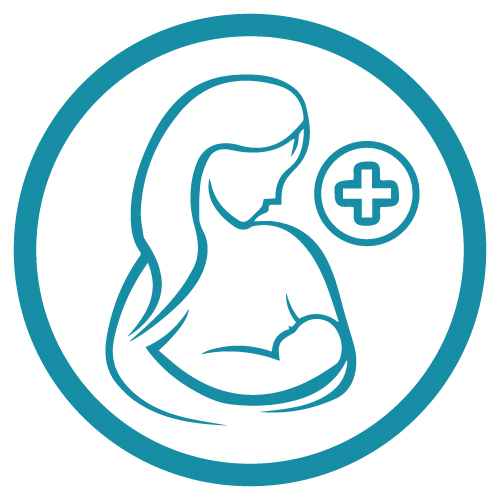 Birth Practices & Breastfeeding Online Course(s) & Continuing Education
Birth Practices & Breastfeeding Online Course(s) & Continuing Education
Access the latest clinical skills and research for Birth Practices & Breastfeeding for PREGNANCY, LABOUR & CHILDBIRTH professional training. These Birth Practices & Breastfeeding online courses provide practice-changing skills and valuable perspectives from leading global experts. This Birth Practices & Breastfeeding education has been accredited for a variety of CEUs / CERPs and can be accessed on-demand, at your own pace.


Jo Gilpin is a Registered Nurse, Midwife and has worked for many years as a Child Health Nurse with the Child and Family Health Service in South Australia (CaFHS). During this time she completed a Graduate Diploma in Health Counselling. She also studied Infant Mental Health at the University of South Australia. She became an IBCLC in 1996.
Her passion throughout has been educating, encouraging and supporting parents to have successful, enjoyable, breastfeeding relationships with their babies. This has been the main focus of her work.
She has worked privately as a Lactation Consultant since 2005. She has published two books, both on breastfeeding. Her most recent is 'Brilliant Breastfeeding: A Sensible Guide'. This was published in October 2018. This book aims to sensitively guide parents and future parents towards fulfilling breastfeeding relationships with up-to-date, evidence-based information. Attention is paid to the many challenges that parents face.
Jo loves what she does and never considers it 'work'. She lives with her husband on Kangaroo Island, which is just off the southern coast of South Australia. Her children and five grandchildren live in Sydney and Brisbane.
A baby’s birth can have a significant impact on breastfeeding outcomes. Medical intervention in normal birthing situations is rife, and globally cesarean rates have soared since 2000. Along with this, breastfeeding rates are less than ideal. A mother who feels a sense of grief about the birth of her baby is consequently more likely to face breastfeeding challenges. IBCLC’s, midwives and medical officers will often begin a breastfeeding consultation by listening to a mother’s unhappy perception of her baby’s birth. This aspect needs to be sensitively supported.
It is high time we take stock and pay more attention to what world health authorities are recommending to improve birthing and thus breastfeeding outcomes. These outcomes can affect a mother’s feelings of empowerment, her physical and mental health. Baby’s health and general development are statistically better when breastfed. There are significant financial savings made by reducing costs in various countries health systems when mothers breastfeed successfully.
There are definite changes we can make, following recommended guidelines and recent research. We can do this individually in our work and also in our affiliations with professional bodies by supporting and encouraging government policymakers and advocacy groups.
These are our future challenges.


Sarah Reece-Stremtan MD is an associate professor of pediatrics and anesthesiology at the George Washington University in Washington DC. Her clinical practice is centered at Children's National Hospital in DC, where she works as a pediatric anesthesiologist, acute pain physician, and acupuncturist. She has particularly strong interests in perioperative preservation of breastfeeding, with specific expertise in safety of anesthesia and analgesia medications used by breastfeeding mothers. She has spoken at Congressional Briefings on the need for enhanced research into the use of medications by breastfeeding and pregnant women, and sits on working group #4 within a federal task force developed to enhance Research Specific to Pregnant Women and Lactating Women (PRGLAC).
She has long been involved with the Academy of Breastfeeding Medicine, authoring multiple clinical protocols, chairing various committees, and most recently serving as Treasurer for 2 terms after 5 years as a member of the Board of Directors.
Many women plan to use various pain medications during labour, with epidural analgesia being the most common type of pain relief utilized in many North American hospitals. Medications used for pain relief during labour cross transplacentally to the infant, with varying effects demonstrated on infants and mothers with regards to breastfeeding. Here we will take a closer look at what is involved in pain transmission signals, the medications that help with pain relief during labour, and the effects of these medications on initiation of breastfeeding. We will discuss issues relating to cesarean delivery, and we will also spend a little time at the end reviewing considerations around general anesthesia for breastfeeding mothers.

Midwives Hold a Key: Opening Doors to Early Parenting and Breastfeeding Success

An inspiring international teacher and published author, Jan Tedder is a nurse practitioner and lactation consultant who was honored as the NC Maternal-Child Nurse of the Year and the recipient of the American Nurses Association’s 2020 Innovative Nurse Award. Jan worked in primary care for decades and trained nurses and physician residents in well-child care and lactation support. She developed HUG Your Baby, an international education program to help parents and the professionals who serve them, understand a child’s behavior and help mothers meet their breastfeeding goals. Available in six languages, her work has been accessed by thousands of professionals around the world used in 50 countries and tribal nations.
Research confirms that misunderstanding a baby’s behavior decreases breastfeeding duration, lowers parent confidence and increases stress and postpartum depression. Literature on “Responsive Parenting” confirms how learning to notice, understand and respond appropriately to a baby’s behavior positively impacts early parenting, breastfeeding duration and the growth and development of a baby. Midwives are uniquely positioned to enhance a family’s ability to meet their parenting and breastfeeding goals. However, other research suggest that information provided patients does not always meet the needs of today’s young families. This presentation reviews efficient, cost-effective tools, tips and techniques that foster “Responsive Parenting”, boost the confidence of new parents and help families meet their breastfeeding goals.

View Details / Enroll

View Details / Enroll











